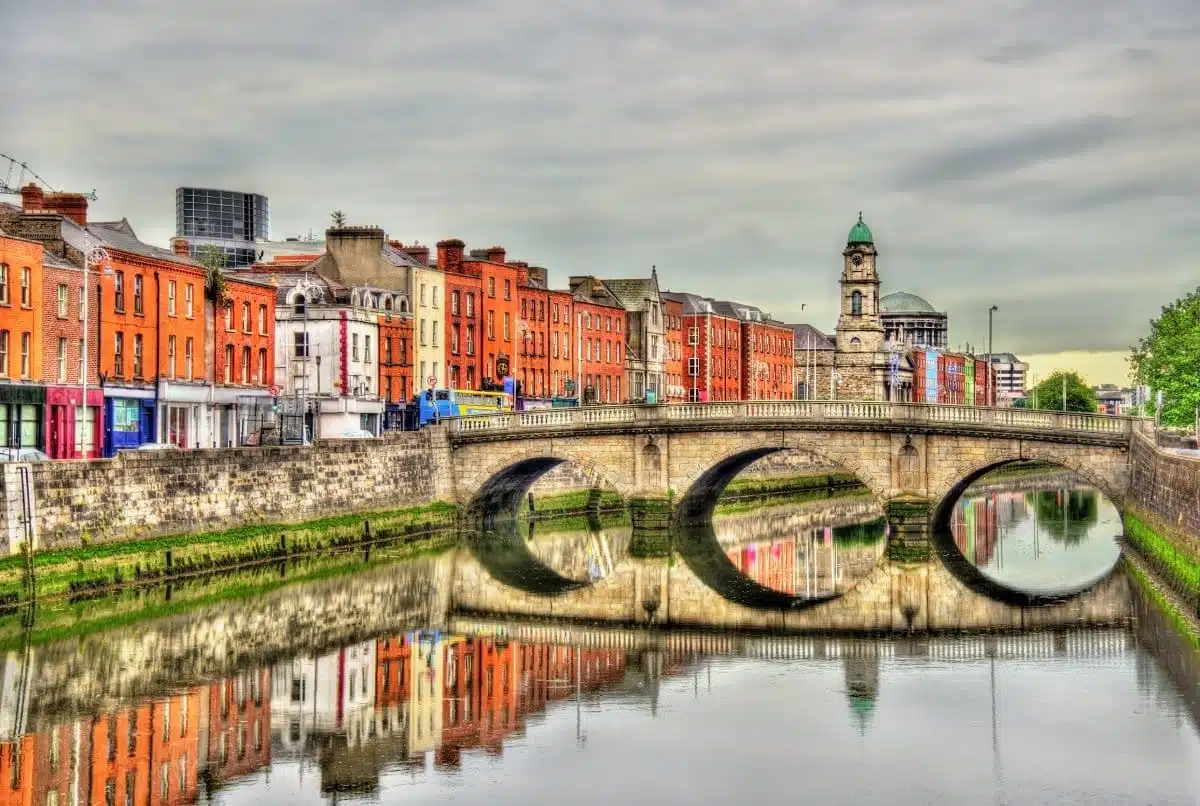Traveler Profile: Katie, UK
Location: Dublin, Ireland
Time of Year: Late spring
Travel Goals: Great photography locations, local culture, leprechauns, Guinness, and good Irish grub!
Dublin had been on my bucket list for eons! I spent several days exploring this extraordinary city, but these are my absolute highlights. Dublin, the capital of Ireland, is rich in history, culture, and gastronomy. A day in Dublin offers an exciting journey through time, from medieval manuscripts to modern culinary innovations, all set against the backdrop of the city’s vibrant streets and tranquil parks. This guide takes you through my perfect day in Dublin, including visits to Trinity College and the Book of Kells, a stroll through St. Stephen’s Green, lunch at Porterhouse Temple Bar, an afternoon at the Guinness Storehouse, and dinner at Note. Sadly, I didn’t find the elusive leprechauns!
Visit Trinity College and See the Book of Kells
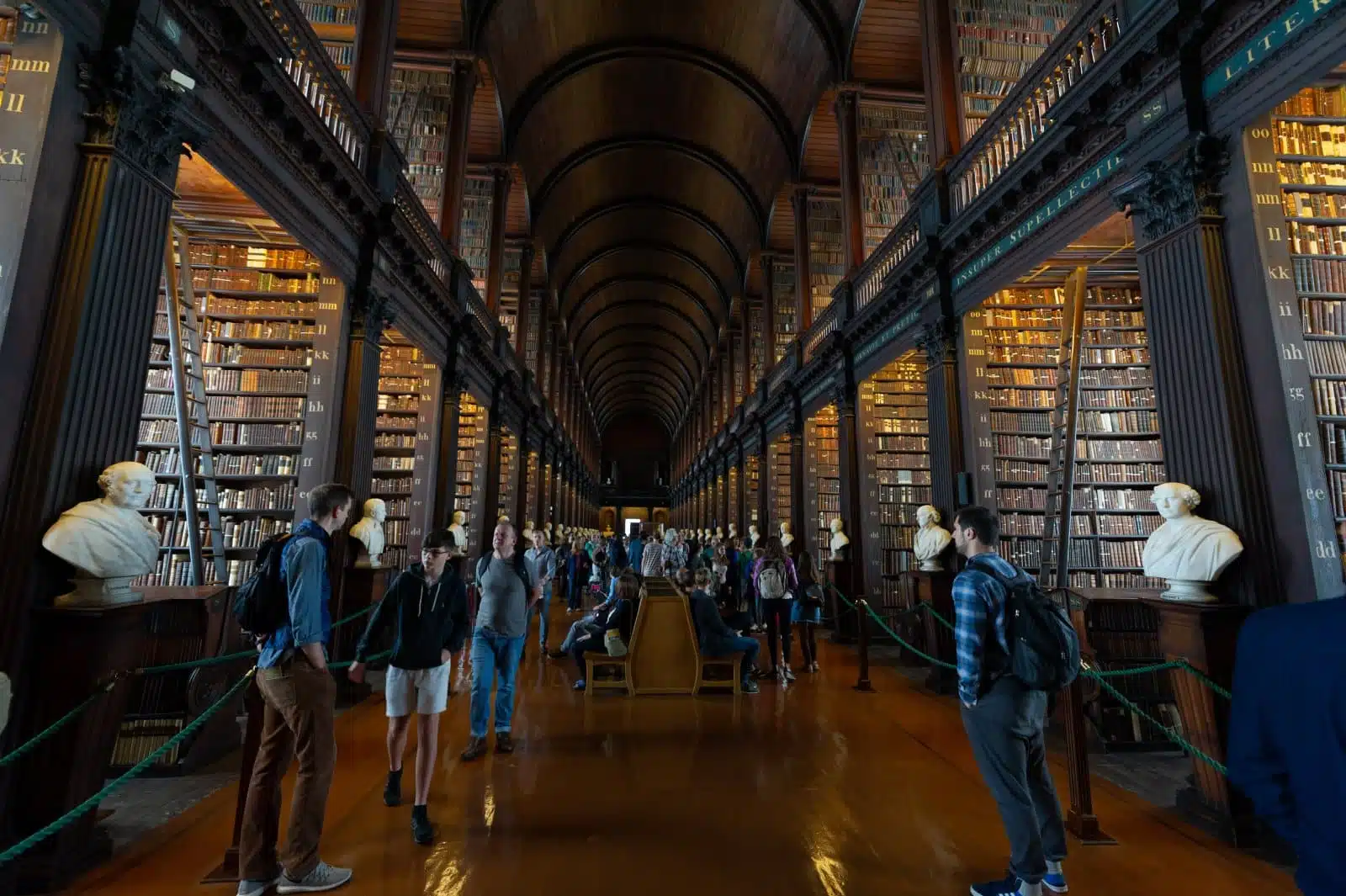
Image Credit: Shutterstock / Alessandro Cancian
Trinity College Dublin, Ireland’s oldest university, founded in 1592, is bursting with scholarly excellence and architectural beauty. The campus is home to the Book of Kells, a 9th-century illuminated manuscript, a masterpiece of medieval art. The exhibit, housed in the Old Library, allows visitors to delve into the rich history and intricate details of this ancient text. The Old Library itself, with its iconic Long Room, is a breathtaking sight, housing over 200,000 of the library’s oldest books in its oak-lined hall.
My Insider’s Tip: To avoid the crowds and have a more intimate experience with the Book of Kells, try to visit early in the morning or book a late afternoon ticket. Additionally, purchasing tickets online in advance can save you time waiting in lines.
Walk Through St. Stephen’s Green
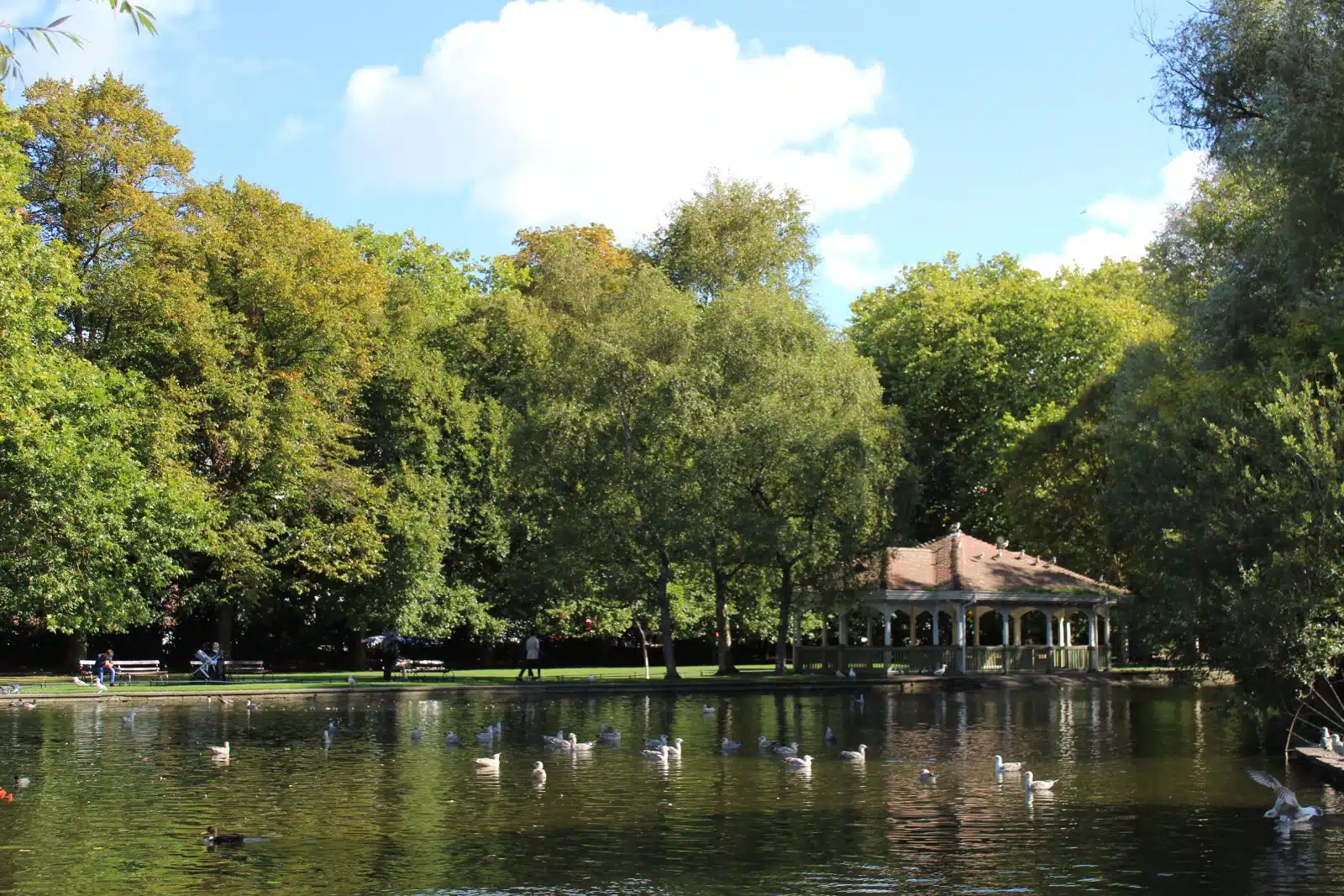
Image Credit: Shutterstock / Sirlene Andreis
St. Stephen’s Green is a peaceful oasis in the heart of Dublin. This 22-acre park, with its Victorian layout, offers a serene escape with its ornamental lakes, lush lawns, and winding pathways. The Green is a place for relaxation and showcases Irish history, dotted with statues and memorials of Irish literary figures and national heroes. It’s a perfect spot for a leisurely walk or a quiet moment to enjoy nature.
My Insider’s Tip: Seek out the Yeats Memorial Garden within the park for a tranquil spot away from the main pathways. It’s an ideal place to reflect or read a good book.
Lunch at Porterhouse Temple Bar
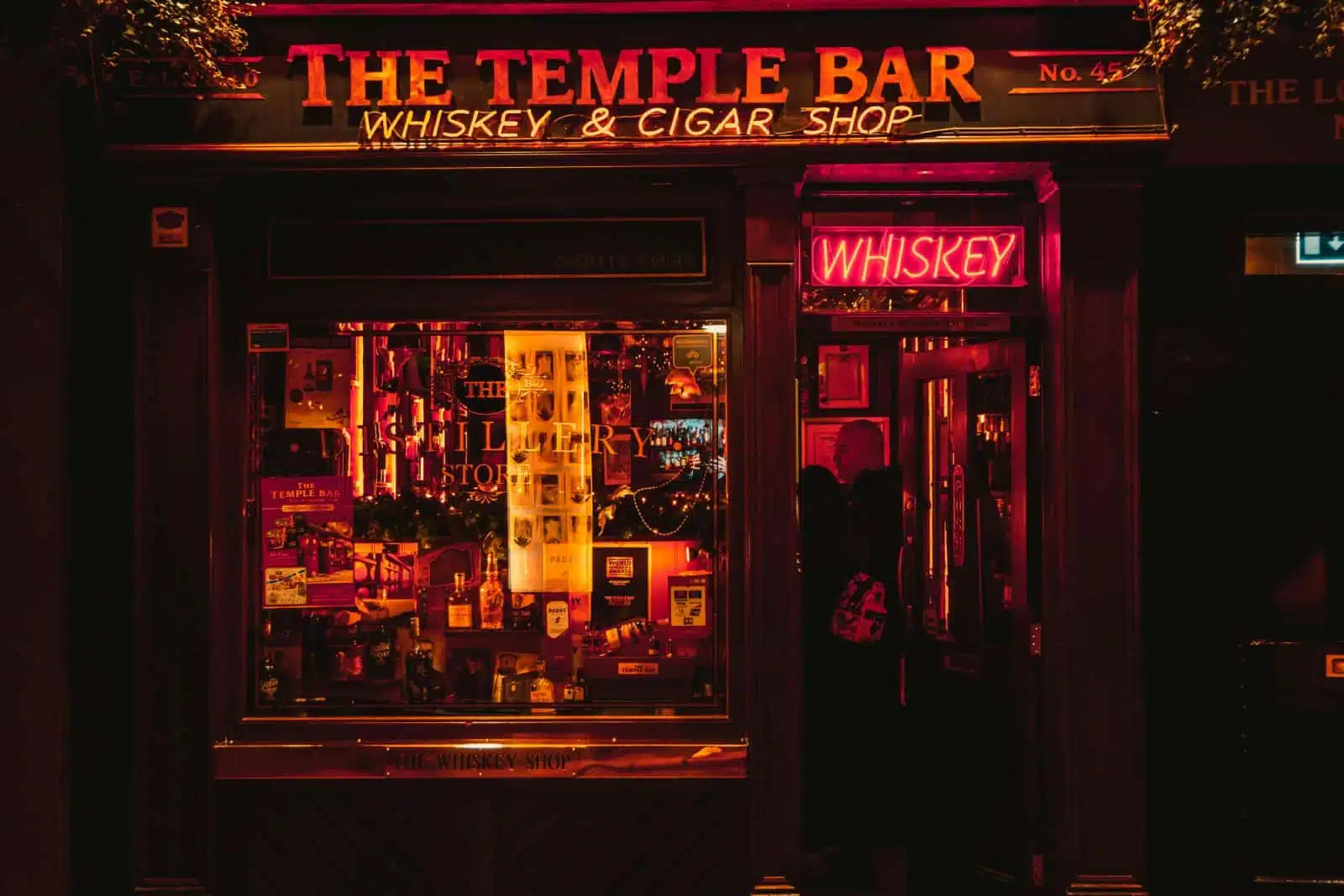
Image Credit: Pexels / Luciann Photography
Porterhouse Temple Bar is perfect for beer enthusiasts and foodies in the lively Temple Bar district. This brewpub, known for its craft beers brewed on-site, offers a diverse menu that complements its extensive beer selection. The atmosphere is quintessentially Dublin, with a mix of locals and tourists enjoying the convivial setting.
My Insider’s Tip: Ask for the brewer’s recommendation to pair with your meal. The knowledgeable staff can guide you to the perfect beer pairing, enhancing your dining experience.
Afternoon at the Guinness Storehouse
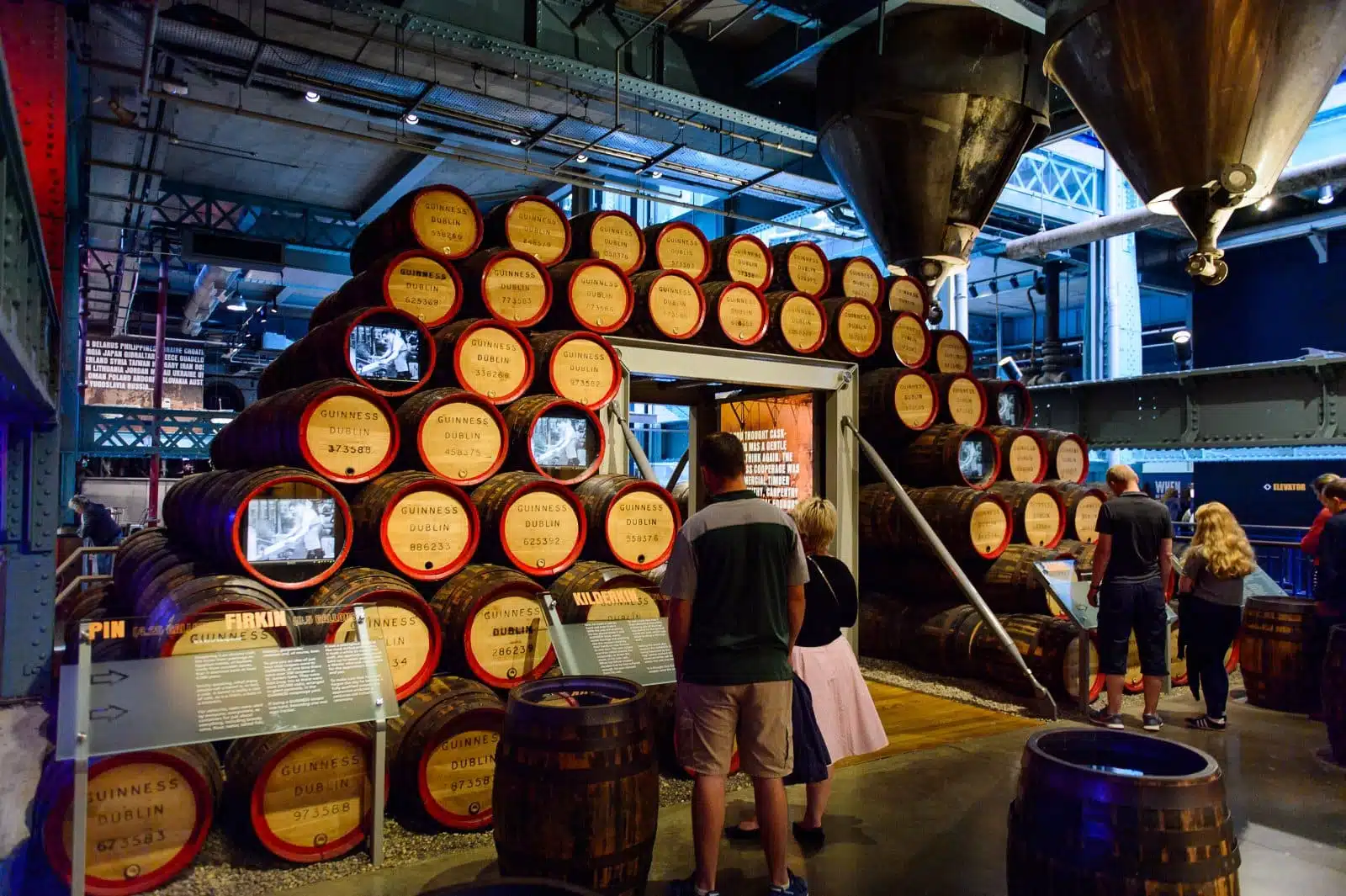
Image Credit: Shutterstock / Anton_Ivanov
The Guinness Storehouse is an essential Dublin experience, offering insight into the history and making of Ireland’s most famous export. The self-guided tour culminates in the Gravity Bar, where you can enjoy a pint of Guinness with panoramic views of Dublin. The journey through the Storehouse is educational and interactive.
My Insider’s Tip: Book your ticket online, skip the queue, and head straight in. Timing your visit to avoid peak hours can also make for a more enjoyable experience, allowing you to take in the exhibits without the crowds.
Dinner at Note

Image Credit: Shutterstock / fornStudio
Note is a Dublin experience that blends fine wine, exquisite small plates, and a cozy atmosphere. The menu showcases seasonal, high-quality ingredients crafted into innovative, comforting dishes. The wine list is thoughtfully selected, offering the perfect accompaniment to your meal.
Insider’s Tip: The Sunday lunch offer is an excellent value, providing a chance to sample the chef’s specialties at a reasonable price. It’s advisable to book in advance, as this popular offer attracts locals and visitors.
Brief History of Dublin

Image caption: Shutterstock / POM POM
Dublin, the capital of Ireland, has a rich history that dates back over a thousand years. Its name is derived from the Irish “Dubh Linn,” meaning “black pool,” referring to a natural pool where the River Poddle met the River Liffey. This area was the site of a Viking settlement in the 9th century, which became a significant urban center by the 10th century.
Dublin was Ireland’s principal city of English rule throughout the medieval period, following the Norman invasion of Ireland in the late 12th century. The city expanded rapidly during the 17th and 18th centuries, becoming the second-largest city in the British Empire for a time. This period saw the construction of many of Dublin’s most notable Georgian architectural features.
The 19th and early 20th centuries were marked by political unrest and the struggle for Irish independence. The Easter Rising of 1916, a key event in the fight for Irish independence, occurred in Dublin. Following the War of Independence and the Anglo-Irish Treaty, Dublin became the capital of the Irish Free State in 1922 and later of the Republic of Ireland.
In the late 20th and early 21st centuries, Dublin experienced significant economic growth, particularly during the Celtic Tiger period, transforming it into a modern, cosmopolitan city. Today, Dublin is known for its vibrant cultural scene and historical landmarks and as a center for education, arts, administration, economy, and industry in Ireland.
When to Travel
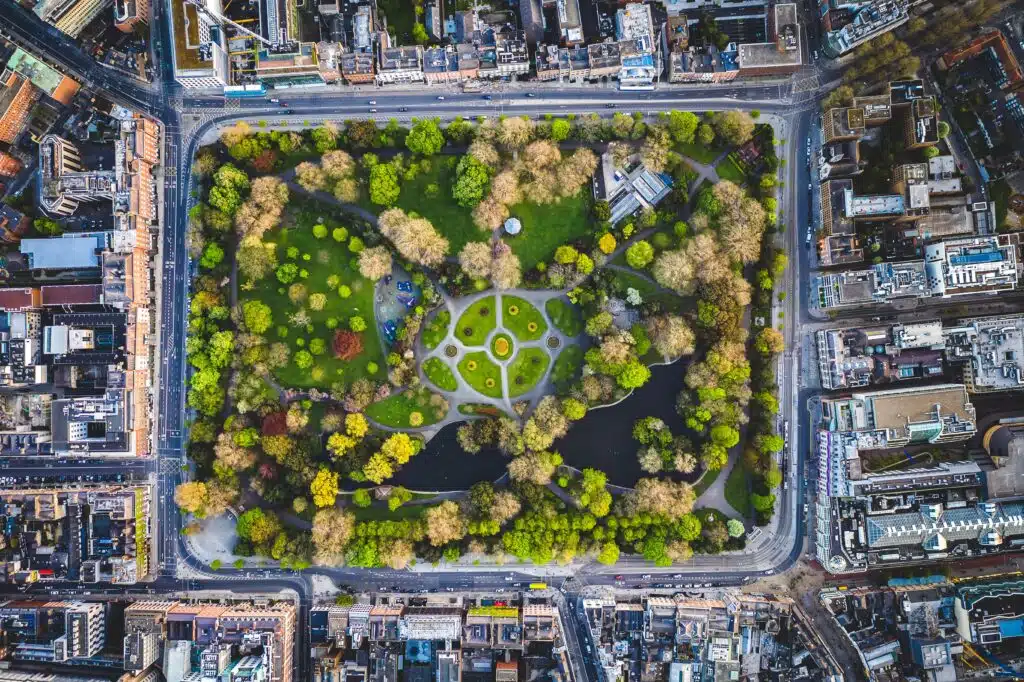
Image credit: Shutterstock / L_E
The best times to visit Dublin are late spring (May and June) and early autumn (September and October) when the weather is mild, and the city is less crowded.
How to Get There

Image caption: Shutterstock / PeopleImages.com – Yuri A
Dublin is well-connected by air, with Dublin Airport serving as the main gateway. The city center is easily accessible via bus, taxi, or the Airlink express service. Once in the city, Dublin’s compact size makes it ideal for exploring on foot, though public transport options like buses and trams are readily available for longer distances.
The Bottom Line
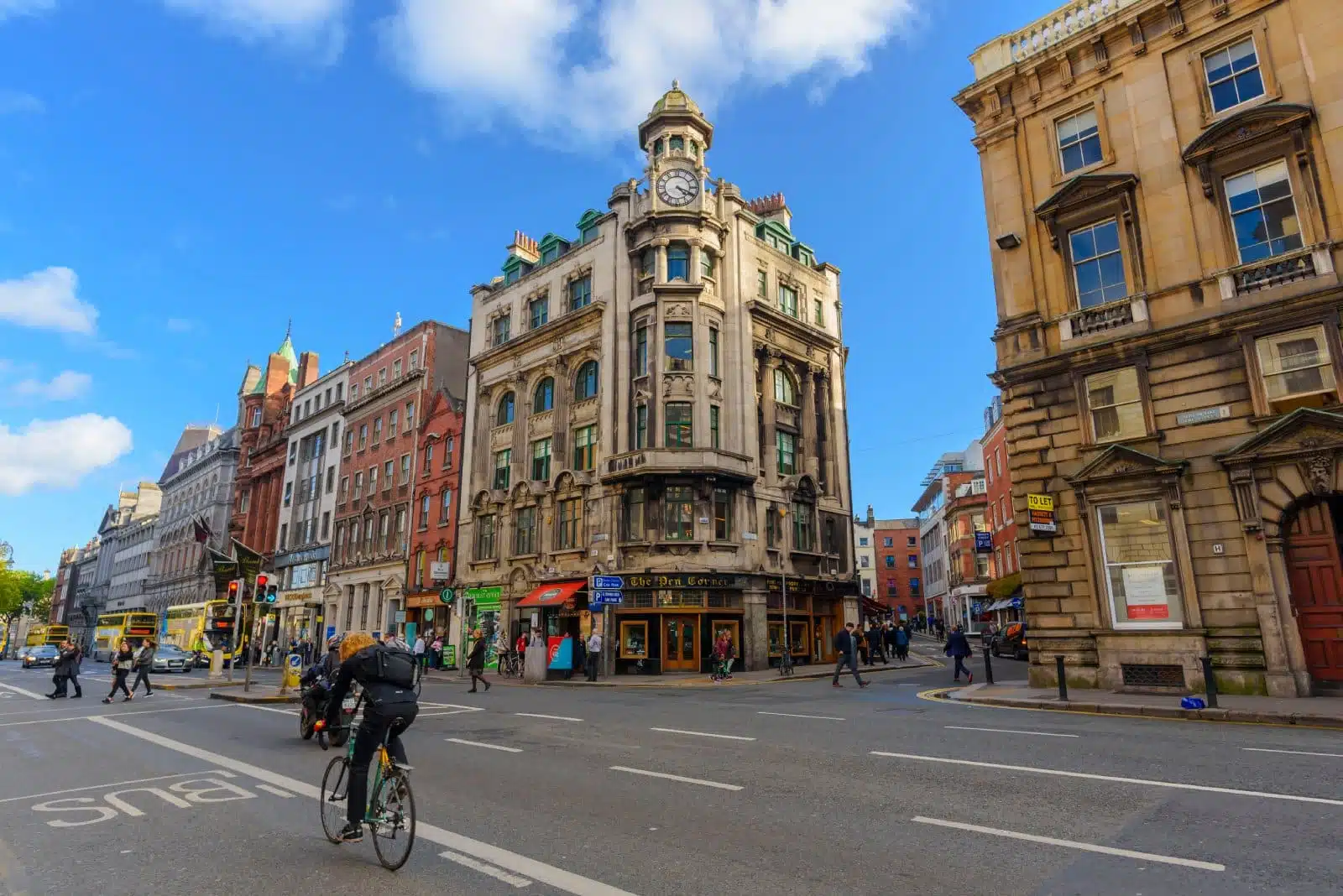
Image credit: Shutterstock / JihunKim94
In Dublin, every corner tells a story, and every meal celebrates insane flavors. From the historical halls of Trinity College to the modern culinary scene at Note, Dublin offers a rich tapestry of experiences. Embrace the city’s history, indulge in its gastronomic delights, and immerse yourself in the vibrant culture of Ireland’s capital.
More From The Green Voyage
Top 10 Trending Travel Destinations 2024
6 Essential Banking Apps for International Travel – Managing Your Finances on the Go
Traveling With Kids – 10 Tips to Create Memorable Family Holidays
The post One Day in…Dublin, Ireland first appeared on The Green Voyage.
Featured Image Credit: Shutterstock / Leonid Andronov.
For transparency, this content was partly developed with AI assistance and carefully curated by an experienced editor to be informative and ensure accuracy.
Tips for Trip Success
Book Your Flight
Find an inexpensive flight by using Kayak, a favorite of ours because it regularly returns less expensive flight options from a variety of airlines.
Book Your Hotel or Special Accommodation
We are big fans of Booking.com. We like their review system and photos. If we want to see more reviews and additional booking options, we go to Expedia.
You Need Travel Insurance!
Good travel insurance means having total peace of mind. Travel insurance protects you when your medical insurance often will not and better than what you get from your credit card. It will provide comprehensive coverage should you need medical treatment or return to the United States, compensation for trip interruption, baggage loss, and other situations.Find the Perfect Insurance Plan for Your Trip
